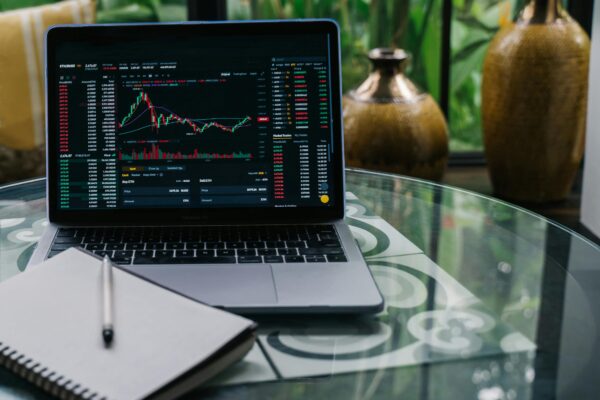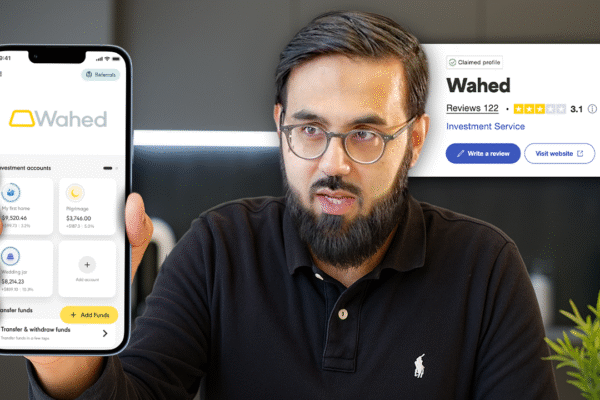
Is the S&P 500 Halal? A Guide for Muslim Investors
26 August 2025 7 min read


Ibrahim Khan
Co-founder
12 min read
Last updated on:
While men are staring gloomily at their battered stock portfolios, the mums and aunties are buzzing with excitement. And rightly so, with their beloved gold is shining brighter than ever.
What’s happened? Gold has just smashed through the $4,250 mark — a gain of around 123% over the past five years!
These are impressive numbers and this article digs into whether gold still remains a good investment, the best ways to invest in gold, and whether gold is a halal investment for Muslims.
There are a plethora of ways you can now invest in gold either offline or online. However only a few of these options are permissible for Muslims. And only a few of those are a commercially viable way of investing that will result in lucrative outcomes long-term.
This article is all about uncovering what those rare options are.
To do that we examine:
There are 7 main ways to invest in gold for an everyday investor:
Let’s take each of these in turn.
The first and most ancient way of investing is by holding actual chunks of gold. The standardised two forms of this are either gold bullion or gold coins (or shares in these).
A gold bullion is a rectangular chunk of gold worth around $750,000 these days, so probably not an investment most people can make or should make unless you are confident of being able to safely store that gold bullion effectively.
Gold coin is a much smaller and more affordable size of gold in the shape of – you’ve guessed it – a coin.
You can also buy percentage shares in both of these types of gold shapes via a gold dealer or online. You can also buy gold by weight too.
There are a whole range of gold brokers online such as Bullion Vault and Minted. They each do slightly different things.
Bullion Vault allows you to either buy gold coins, or to actually trade gold with other sellers live on the internet. This cuts out the middleman and the fees associated with that.
Minted allow you to buy one-off amounts of gold, or to set a direct debit so you slowly save up in gold.
You can compare them both side by side along with other options on our investment comparison here.
Investing in gold jewellery is a popular way of investing in gold and the positives are you get to actually use the gold, look nice, and you know the gold is safe if you literally have it around your neck for example.
The downsides are considerable though – especially if you look at it from a pure investment lens:
All in all, if you are buying gold jewellery for jewellery – that’s great. If for investment only, then there are probably better ways to invest in gold.
Here is a list of gold ETFs available in the USA. The two highlighted ETFs in the below list are not sharia-compliant as they do not actually hold gold. Rather they create the same effect via holding gold futures and options.
Everything else is fine. You can invest in most of these ETFs. I have included their ticker code in the brackets.
All of the below ETFs are a way to invest directly into physical gold in the UK. You can invest in these via Hargreaves Lansdowne here.
To compare directly between the fee structures for each of these ETFs/ETCs see here.
As mentioned above, under Islamic law most scholars opine that futures or options trading is not permissible (though a small minority disagree). See our Fatwa Forum or a detailed comparison and analysis. When it comes to gold and precious commodities in particular, scholar are particularly careful about any deferment in delivery or payment.
As such, any ETFs or ETCs (Exchange Trade Commodities) are best avoided where they link their return to gold via futures or options holding.
Investing in CFDs and spread betting is unambiguously haram. This is because there is no real gold trading taking place and the economic effect is exactly symmetrical to that of gambling.
There’s a reason why spread betting has “betting” in the name.
The other way to invest into gold is to invest in gold mining stocks. This is relatively effective as gold mining stocks naturally rise in price when gold prices rise (as what they are mining is now worth more).
However, if you choose to invest in gold stocks, understand that you are buying a company with all its complications and subtleties. You are buying a business and no two businesses are alike. Just like buying Shell or BP isn’t the equivalent to buying oil directly, buying gold miners isn’t equivalent to buying gold directly.
For each of the below stocks you should check that it is sharia-compliant from a debt perspective. To find out how, see here. To actually buy these stocks you’ll need to register with a broker like Hargreaves Lansdowne.
Here’s a list of some companies in the FTSE 100 that mine gold:
Here’s a list of companies from the FTSE 250 that mine gold:
Finally, you have some smaller companies that also mine gold. Typically, smaller companies are higher risk and higher reward.
Yes, investing in gold can be halal, but only if it’s done in a way that follows Islamic principles. According to AAOIFI (the leading standard-setter for Islamic finance), gold must be traded on a spot basis, meaning both payment and transfer of ownership happen immediately. The gold must be fully allocated to you, with no uncertainty over who owns what. That allocation can be physical (like coins or bars) or constructive (like digital gold with clear certification and receipts). Joint ownership is also allowed, as long as these conditions are met.
Here is the sharia take on each of the 7 methods of buying gold:
| Method of buying gold | Sharia analysis |
| Physical gold via bullion or coin websites | Halal (but do make sure you’re actually buying a physical asset and there is clarity over ownership records and when ownership transfer to you. Ideally you should also be able to take delivery.) |
| Physical gold via jewellery | Halal |
| ETFs that hold physical gold | Halal |
| ETFs that hold gold futures and options | Haram |
| Gold stocks and shares | Halal (but do check for debt levels) |
| Futures or options | Generally seen as haram (but minority do view them as permissible) |
| CFDs, spread betting and other derivatives | Haram |
Now we know where you can invest in gold, and which are the halal ways of investing in gold, let’s consider if its actually a good idea.
We think a good way to think about gold is to think of it as money – not an investment class. Gold doesn’t yield you anything and is fundamentally a useless thing (other than for jewellery etc.) It has historically been used as a store of value and a means of exchange.
Our investment philosophy at IFG has always been to encourage long-term mindset investment and favouring those investment classes that add real value to the world. So for example we would prefer an investment into a great long-term growth company that is making advances in healthcare technology over a short-term trading strategy that scalps profits every day due to market fluctuations. The former fundamentally makes the world a better place and is defensible long-term while the latter is less so.
Let’s run through the pros and cons of investing in gold in a bit more detail.
To come to a conclusion on whether now is the best time to invest in gold, I would consider the following factors:
On (1), while I am no expert in gold prices, I am fairly confident that we will see macro instabilities, government printing more money, and uncertainty in the markets to continue over the next 3-5 years at least. Based on that, I would expect gold prices to at least hold their value.
A word of caution though, gold is on a great run right now, and it’s exactly in times of euphoria that you need to be wary.
Remember: the last time gold peaked was back in August 2011, when it hit nearly $1,900 an ounce.
Many rushed in thinking the sky was the limit. What happened next? Prices collapsed by nearly 45% over the following years, and it took almost a decade to recover.
History doesn’t repeat exactly, but it often rhymes. So it’s vital not to let fear of missing out (FOMO) drive your investment decisions.
On (2), I think there are a whole range of alternative investments to consider (see here) but in order for there to be a truly effective comparison to gold, the investment class should be safe and easy to exit from.
The only real alternative is a savings account. And relative to a savings account you’re probably more likely to see growth in gold prices compared to savings returns (which are very low currently).
There are a few other fixed income investments, which could also work:
You can learn more about these assets in this article.
However, you’ll want to carefully consider liquidity (how quickly and easily you can exit the investment) when investing in these assets. Gold and savings accounts are highly liquid, meaning you can usually sell or access your money quickly (unless you’re going for long fixed terms on your savings accounts).
In contrast, sukuk can sometimes have limited secondary markets depending on the issuer, property typically requires months to sell, and asset-backed financing often has fixed terms.
If easy access to your money is important to you, gold and savings accounts will generally offer greater flexibility than these alternatives.
Finally, on (3), if I did buy gold I would buy it via an online broker such as Bullion Vault and Minted. Alternatively, I would buy via a gold ETF using Hargreaves Lansdowne. I would not buy physical gold and take actual delivery, or buy gold jewellery thinking it is a great investment.
Having done a fair bit of research and thinking around gold, my preferred approach is to hold a steady 5% or so of my portfolio in gold and just maintain that regardless of price. So if gold prices rise and my gold holding becomes 10% of my portfolio, I would sell it to get back to 5%. And if gold prices fall and my holding is worth 3%, I would buy more gold to get to 5% of my overall portfolio again.
The reason I take this approach is, I think of gold as essentially an equivalent to cash, but one where there is a potential for a little growth.
But I don’t like putting too much in gold as I don’t consider it a productive asset – and I like to invest in productive assets as they are going to make me much more money long-term.

26 August 2025 7 min read

24 July 2025 15 min read

16 July 2025 5 min read
Quraishi Aasif
3 months ago
Excellent work for Muslims